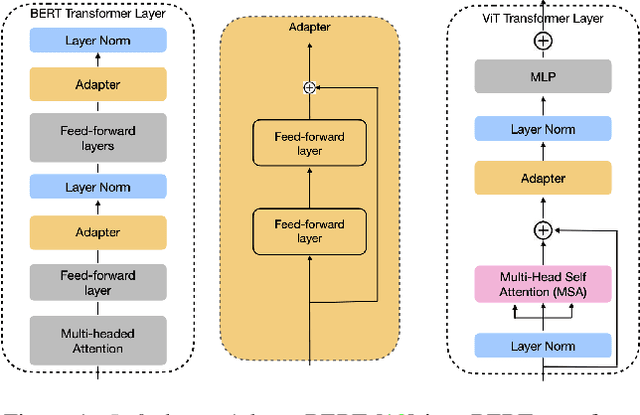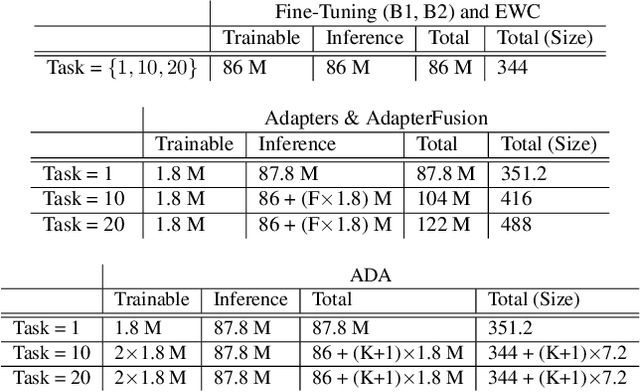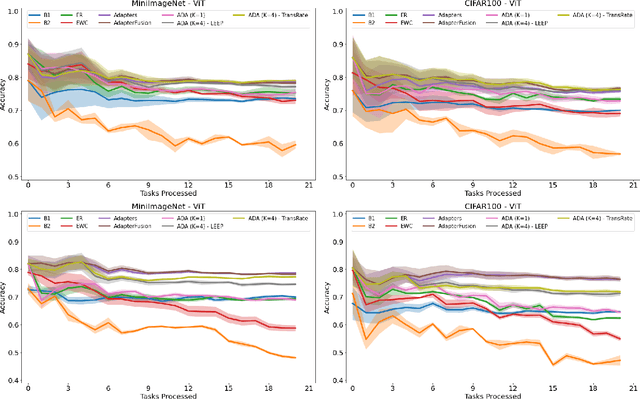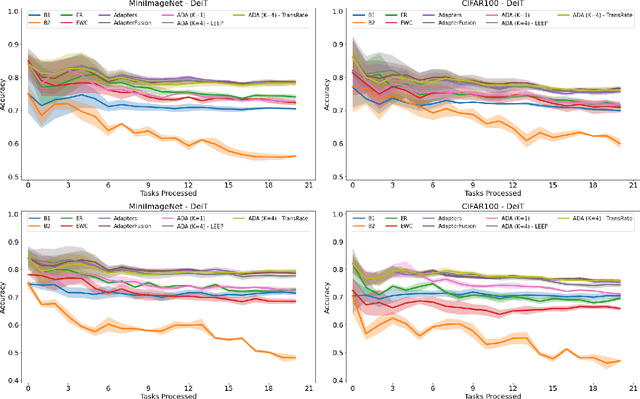Continual Learning with Transformers for Image Classification
Paper and Code
Jun 28, 2022



In many real-world scenarios, data to train machine learning models become available over time. However, neural network models struggle to continually learn new concepts without forgetting what has been learnt in the past. This phenomenon is known as catastrophic forgetting and it is often difficult to prevent due to practical constraints, such as the amount of data that can be stored or the limited computation sources that can be used. Moreover, training large neural networks, such as Transformers, from scratch is very costly and requires a vast amount of training data, which might not be available in the application domain of interest. A recent trend indicates that dynamic architectures based on an expansion of the parameters can reduce catastrophic forgetting efficiently in continual learning, but this needs complex tuning to balance the growing number of parameters and barely share any information across tasks. As a result, they struggle to scale to a large number of tasks without significant overhead. In this paper, we validate in the computer vision domain a recent solution called Adaptive Distillation of Adapters (ADA), which is developed to perform continual learning using pre-trained Transformers and Adapters on text classification tasks. We empirically demonstrate on different classification tasks that this method maintains a good predictive performance without retraining the model or increasing the number of model parameters over the time. Besides it is significantly faster at inference time compared to the state-of-the-art methods.
 Add to Chrome
Add to Chrome Add to Firefox
Add to Firefox Add to Edge
Add to Edge